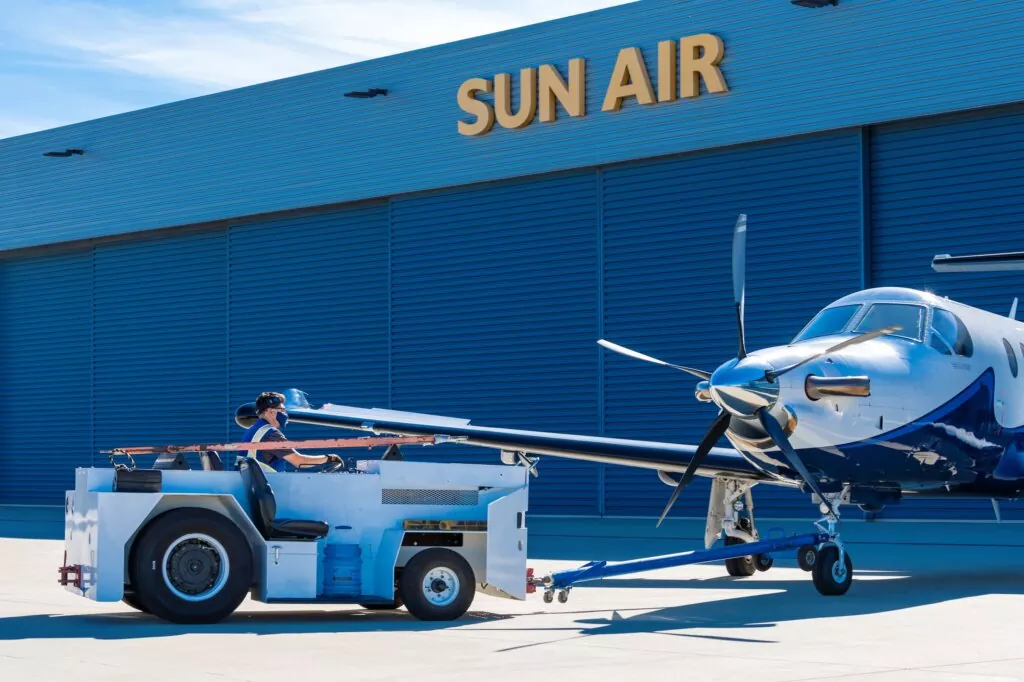Everyone in the aviation industry wants to provide an excellent travel experience for their passengers. This is especially true for those in private travel as they want to ensure the overall flight experience is nothing short of luxurious. In addition to a luxurious experience, safety is of utmost importance to any flight. Understanding aviation safety and how to implement it is extremely important when determining where to fly.
All of this, however, takes a backseat to safety. Aviation safety must be taken seriously due to the lives at stake every time a flight takes off.
Understanding Aviation Safety
When it comes down to it, aviation safety is all about keeping passengers and crews safe – both on the ground and in the sky. Anytime you travel via a private jet or even a commercial airliner, there is no doubt that you expect to make it to your destination in one piece and without issue. You trust that the flight crew will do their job and that the maintenance technicians are well-trained. Technicians play a significant role in ensuring the aircraft is operating correctly and can avoid accidents.
It is up to the airline or aviation company to provide a high level of service to gain this level of trust.
Why Aviation Safety is So Important
Putting aviation safety at the top of the to-do list is incredibly important. After all, this is what prevents accidents and such from happening within the industry. There are usually many things that can lead to an epic fail, such as a safety breach. And it can lead to dire consequences.
From the time an aircraft is built, safety is in mind. And everyone plays a role. For instance, the aircraft manufacturer, the jet maintenance technicians, other miscellaneous ground support, air traffic control, the flight crew, and even passengers.
Many people are involved in creating a safe flight experience for the passengers, crew, and pilots. Over time, standards and policies have been adopted that allow each flight to depart and arrive safely. These practices reduce the chance of errors by catching errors before they occur.
Improvements in Aviation Safety
When dealing with something as important as jet safety, you need it constantly to be at the forefront of your mind. It needs to play a massive part in everyday life consistently. And it must constantly be evolving.
As with any business, you want to protect your employees and customers. You put practices in place to ensure everyone can take advantage of your products and services without any added risk. For instance, you expect to be able to go to your grocery store, shop for your groceries, and purchase them without getting hurt. This is why they make sure the aisle ways are straightforward, the floors are clean, and they have employees available to help with any customer service issue. They put safety policies in place to protect everyone, such as employees having to wear gloves when handling food, closed-toed shoes while working, and wet floor signs when there is a spill so that you don’t slip and get injured.
Letting your guard down in aviation is a different story. The difference is that any business only sometimes comes with the huge safety risks you find in the aviation industry. Without practicing safety, you could risk an injury of some sort at the grocery store, such as slipping and falling, but you don’t run the risk of losing your life.
With many aircraft in the sky at any given moment, many lives are at stake, and safety must be of first importance. Finding ways to do that – and improve on today’s practices for a safer tomorrow – is what everyone in the aviation industry should be doing.
Strategies for Future Safety Success
To boost the future of successful aviation, everyone must work together. Those who manufacture the jets, operate them at all stages and regulate air travel can collaborate and create a plan.
Because the industry is so vast, many safety requirements have to be regulated to ensure that everyone is on the same page – and that customers can expect the same level of safety no matter which jet they find themselves on.
But it can’t be all about regulations, can it? Those who manufacture aircraft should continuously be looking for new equipment and more advanced technology to make today’s aircraft safer than they used to be. And those in charge of operating the aircraft should have a deep understanding and a high level of training to properly and successfully operate it. This even includes continued training for pilots to ensure they are up on their skills.
Having policies and standards that must be met and double-checked by more than one person can help lead to safety success.
How Sun Air Jets Upholds the Highest Safety Standards
Whether it is chartered flights, our fleet management, or our aircraft maintenance, Sun Air Jets has the highest safety standards – and we are always looking for ways to improve them. The safety of everyone involved is at the heart of what we do. We take a thorough, proactive approach to safety, and it shows. A flawless safety record for over two decades proves that what we are doing is working.
Sun Air Jets has ensured flight safety by using a skilled maintenance team, experienced flight crew, and high safety standards. Committing to meeting the goals set by our Safety Management System (SMS) has allowed us to continue providing safe, positive flight experiences for all our passengers. We have even earned a few distinctions along the way, too. As a passenger, you expect to be safe when you fly to your destination. Sun Air Jets makes that expectation a reality.


No comments for “The Importance of Exceptional Aviation Safety Standards”